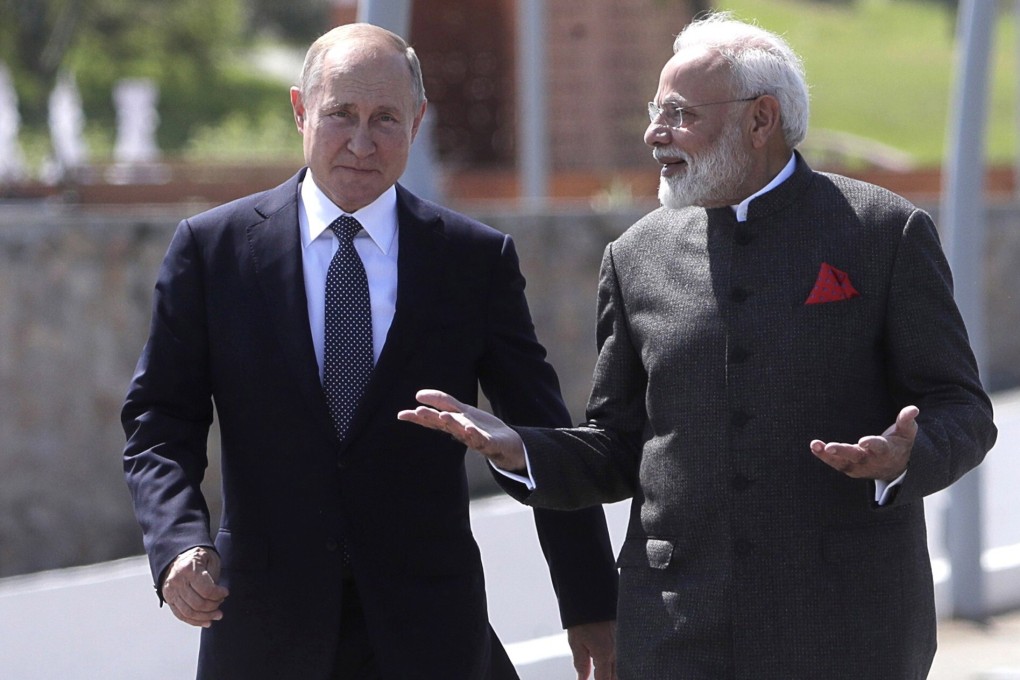Advertisement
Why Russia’s getting involved in the China-India border dispute
- Moscow is keen to regain its influence in South Asia, which has been on the wane since its invasion of Afghanistan and the fall of the Soviet Union
- Vladimir Putin has a vision of a Russia-led ‘Greater Eurasia’ community of nations – and for this to work, it needs to play ball with both Beijing and Delhi
Reading Time:6 minutes
Why you can trust SCMP
0

When the foreign ministers of India and China agreed to de-escalate tensions along their disputed border, there were three countries – not two – eager to take credit for the breakthrough.
“We are very happy that Moscow has presented a platform to Russia, China and India to have this very productive, fruitful meeting whose goal is to stabilise the situation on the border between India and China,” Russian Foreign Minister Sergei Lavrov told a local reporter after the talks, which took place on the sidelines of the recent Shanghai Cooperation Organisation meeting in Moscow.
While experts remain sceptical over how great a breakthrough the agreement really represents for China and India, given that thousands of their troops at the border remain within firing range of each other, for Russia the optics surrounding the meeting could be viewed as a victory itself.
Suddenly, Moscow found itself once again on the centre stage of geopolitics – and in case there were any doubts, there was even an official photo shoot featuring Lavrov with his Indian and Chinese counterparts, S. Jaishankar and Wang Yi, standing either side of him.

Observers say Russia’s eagerness to facilitate the talks should be seen as its latest move to raise its profile in South Asia.
As Alexey Kupriyanov of IMEMO, a non-profit institute of the Moscow-based Russian Academy of Sciences, pointed out, “Russia is returning to South Asia for a variety of reasons”. Chief among them appears to be a desire to return to big politics and regain some of the influence Moscow lost during the disastrous decades of the 1980s and 1990s when its ill-fated decision to invade Afghanistan was followed by the collapse of the Soviet Union and an economic crisis.
Advertisement